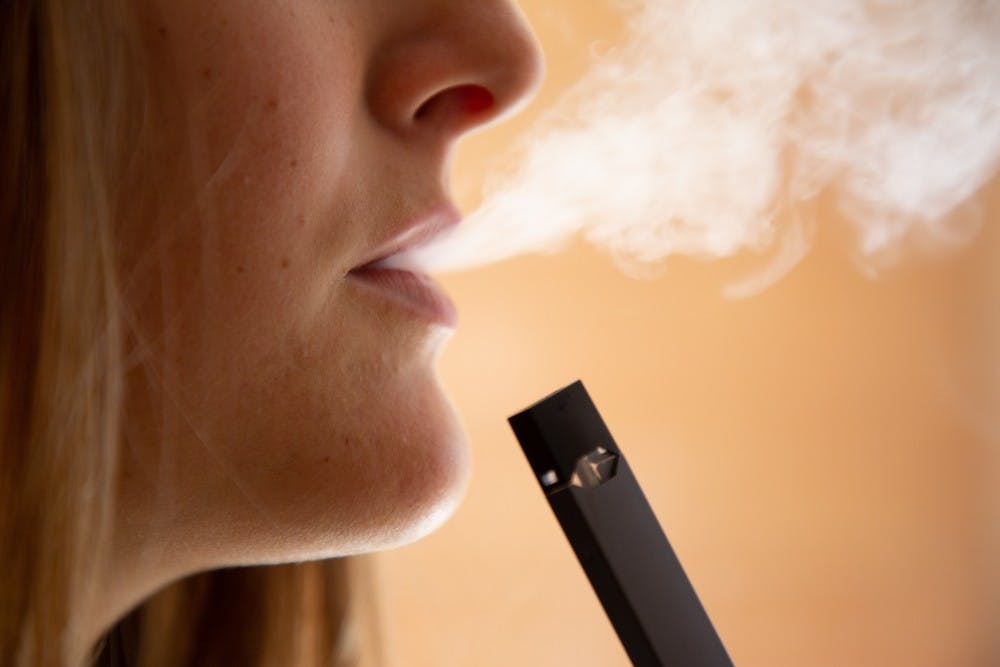Attention vapers: following new health and safety concerns, ASU has decided to ban vaping on campus starting July 1.
According to a statement issued by ASU, the change in policy came after research began to show that while vaping is a popular cigarette alternative, it may not be a safe one.
An ASU spokesperson said that the initiative received “strong support from the faculty, senate and student government.”
The rise in popularity of vaping devices didn't receive an immediate response from the University, whose initial 2013 tobacco-free policy didn't include vapes. But the recently announced vaping ban was not a surprise to Lesley Manson, a clinical assistant professor at the College of Health Solutions.
“It’s taken people more time to realize the concerns, but now that its an epidemic, people are paying attention,” Manson said. “Something I’ve seen that is concerning is that people are listening to those who are selling the products, and with all the research that’s been done, I think some people just still don’t want to know the truth.”
She said that ASU’s ban could protect people who are uneducated about the consequences of vaping.
Even as tobacco use hits an all-time low, according to a news release published by the National Institutes of Health, tobacco use among teens has experienced recent spikes, which health agencies attribute to vaping.
Juul and other notable vape companies were recently blamed by the CDC for driving a massive spike in tobacco use among teens, especially in cases of underage use.
Agam Mahato, a freshman studying professional flight, said that he vapes and although he is not surprised that a policy was created, he would be surprised if the new policy breaks students of the habit.
"It’s a five-minute walk to get off campus and vape, and I don’t think the people who do it now are going to change that with this policy, especially because a lot of people who do it already thought it wasn’t allowed,” he said.
Keith Wisniewski, a manager at the vape shop Butt Out Mill and an ASU alumnus who was a student during the initial tobacco ban, said that the ban was what pushed him off cigarettes and onto other alternatives, where he discovered vaping.
“There are pros and cons to it, but I think it’s disheartening because students who are trying to quit smoking have one less option,” Wisniewski said.
He said that the vaping industry, which has been “demonized” due to some of the larger players growing in popularity with underage and non-smoking markets, still has the potential to help people quit cigarette use.
Other nicotine products, including patches and gum, are still allowed on campus.
As a part of its tobacco-free initiative, ASU offers resources such as Tobacco-free Zone maps and resources for both students and staff who are considering quitting tobacco use.
Reach the reporter at kreinha3@asu.edu and follow @ReinhartKatelyn on Twitter.
Like The State Press on Facebook and follow @statepress on Twitter.




